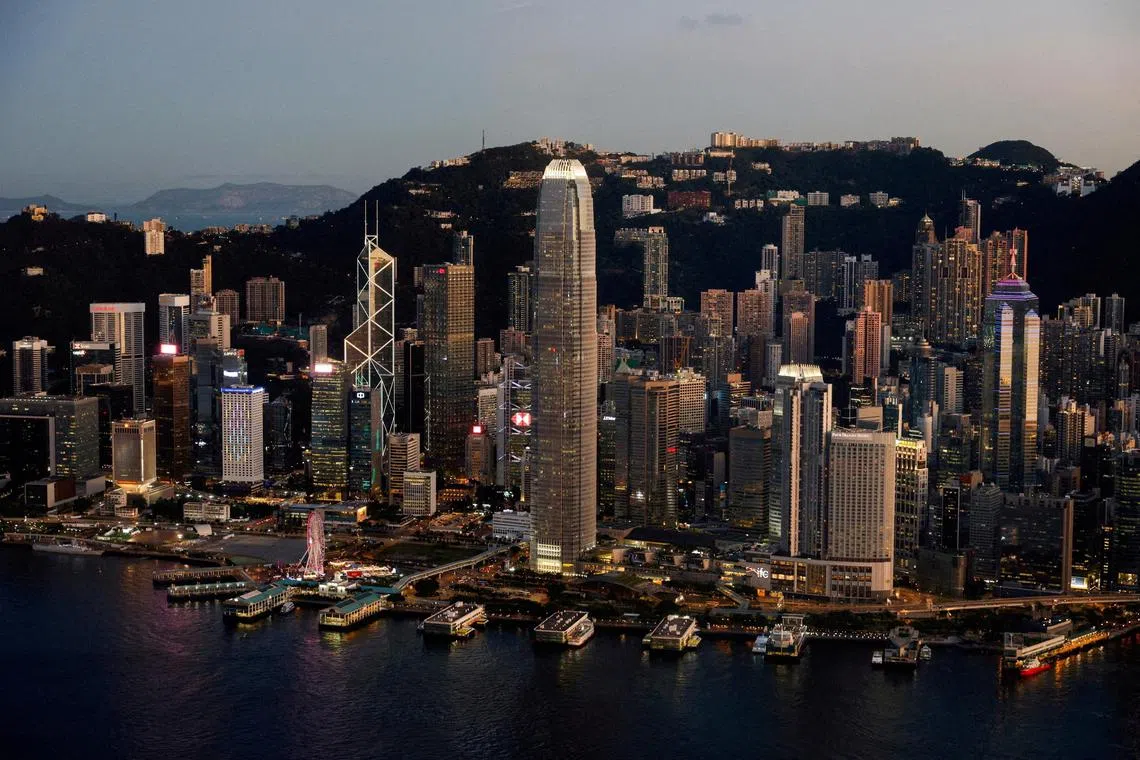Hong Kong mandates national security law promotion on free TV, radio
Sign up now: Get insights on Asia's fast-moving developments

The new licence terms apply to three free-to-air television channels and two radio stations.
PHOTO: REUTERS
Follow topic:
HONG KONG - Hong Kong’s free television and radio broadcasters must air weekly programmes that promote Chinese “national identity” as well as a national security law, according to licensing requirements announced by the government on Tuesday.
The stipulations come as Beijing works to remould the territory, cracking down on a protest movement that had championed a Hong Kong identity that was distinct from the rest of China.
Similar clauses have been woven into various city regulations since Beijing imposed the far-reaching national security law in 2020
Once the crucible of Cantonese cinema and a bastion of free speech, Hong Kong is being transformed after those protests, with censorship powers strengthened
Mr John Lee, the city’s former security chief who is now its leader, approved new licence terms on Tuesday that apply to three free-to-air television channels and two radio stations.
One of the provisions requires the licensed stations to “broadcast no less than 30 minutes of programmes on national education, national identity and (the) National Security Law per week”, in addition to the hour of current affairs they are already required to air.
For the television stations, the programming no longer needs to be “wholly of Hong Kong origin”, which means the national security segments could be produced outside the city.
Other changes include doubling the weekly hours of programming for young people, while halving those aimed at children to 14 hours per week.
The licence terms will be effective for the next six years.
As part of a raft of recent changes, China has also revamped the city’s education system, with a curriculum that now includes teaching the national security law from kindergarten.
At a press briefing on Tuesday, Mr Lee said he supported the preparation of additional national security legislation by 2024.
Critics say Beijing’s security law has leached Hong Kong of its civil liberties and boisterous political culture, while the authorities say it is necessary to restore order and stability.
More than 230 people have been arrested and more than 140 prosecuted
In recent years, polling has shown that most people in the city identify primarily as “Hongkongers” rather than “Chinese”. AFP

